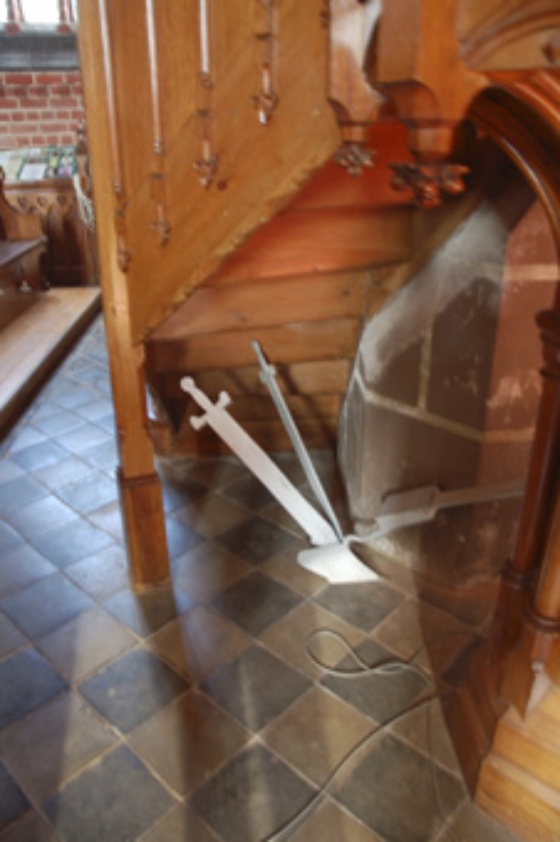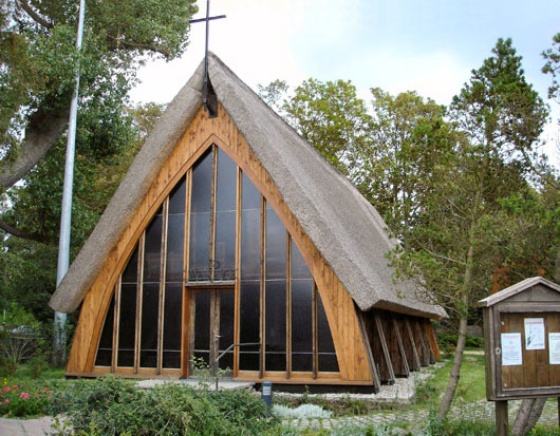The church was mistrusted in the GDR. The youth community, with 25,000 members in the north, was discredited as being "subversive" in spring 1953.
The Catholic Church received an episcopal commissariat (office) in Schwerin.
Despite the freedom of religion the state and SED wanted to replace communion and confirmation with “Jugendweihe” (youth initiation ceremonies). The church was obstructed as a centre by critics. Small communities withdrew from the political scene. The churches did charitable work with disabled people, families and youths.
In autumn 1989 evangelical churches were often the starting points for the protests against the SED-ruled state, which was dissolved in 1990.
In 1994 two Jewish communities were created in Rostock and Schwerin through the influx of people from the early Soviet Union. They formed the National Association of Jewish communities.
In 1995 the Catholic Church created the northern diocese for Hamburg, Schleswig-Holstein and the Mecklenburg region.
A Muslim coordination council was created in Mecklenburg-Western Pomerania in 2009.
In 2012 the national churches in Mecklenburg-Western Pomerania, Hamburg and Schleswig-Holstein created the Lutheran "northern church."

